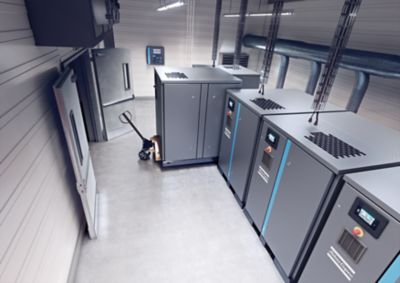Costly consequences of overlooking industrial energy savings
“You snooze, you lose.” Failing to seize an opportunity will result in disadvantages later, applies nowhere more than in business. Detecting possible energy savings is no exception.
One-hundred years ago, if you were still relying on horses and carts to move goods while your competitors used trucks, your company probably wasn’t going to last. Twenty years ago, if you felt that the Internet was a fad that would pass, then your market share probably ended up plummeting.
Today, that opportunity is future-proof technology. And missing out on it will mean getting left behind. Future-proof equipment may cost more initially, but it will save money in the long run. This is because it reduces production costs and offers other benefits. The upfront investment will be quickly recouped and even exceeded.
That is why the real question executives should be asking is not “What is it costing my company to go green?” but rather “What is it costing my company not going green?”
The answer is “a lot.”
Higher production costs
Most importantly, companies that refuse to invest in cleaner technologies will miss out on substantially lowering their production costs. Competitors are saving money on energy by using solar power, innovative waste heat recovery systems and energy conversion systems. Businesses with outdated equipment will have higher maintenance and energy costs.
This effect is magnified when it comes to machinery that uses a lot of energy, such as compressors. The purchase price constitutes only a fraction of the total cost of ownership while the money spent on energy accounts for 80 percent of it.
Companies that don't use modern technology end up spending more money on electricity, which makes things harder for them.
They can either pass on the extra costs to consumers or make cuts elsewhere.They are also much more vulnerable to fluctuations in the cost of energy.
If, for example, a country decides to increase taxes on traditional energysources, companies that still rely on traditional, inefficient technology will end up having to pay even more.
They cannot get help from the government like subsidies and tax breaks for buying energy-efficient equipment.
Loss of reputation
Businesses that don't reduce energy use may damage their reputation, even though production costs will increase.
In a world where environmental conservation is crucial, businesses that employ energy-efficient technologies are more attractive to both clients and staff. These companies can use their commitment to a cleaner world in marketing activities or on product labels.
This can lead to increased loyalty and support from both customers and employees.
Conversely, businesses that make no such investments will be seen as an obstacle to a sustainable future. In addition, renewable technology is widely perceived as innovative. As a result, companies that continue to rely on “old” technology will be viewed as being a step behind their competitors.
This is particularly essential for recruiting promising employees.
In order to attract and retain top employees, companies simply cannot be viewed as standing in the way of progress.
Uncertainty
In our fast-paced world, being able to plan ahead is incredibly important to managers. In most cases, surprises are bad for business. Using older, inefficient equipment makes companies vulnerable to sudden, drastic changes, such as a new environmental law or a court ruling that bans certain machinery. Businesses that are ahead of their times with innovative, future-stable technology do not have to worry about their equipment all of a sudden having to be replaced.
While each of these reasons should be compelling enough to get companies working on decreasing their waste and energy consumption, perhaps the best argument is that renewable energy technology is inevitable.
Each year, consumers will demand companies to be more responsible. Each year, environmental standards will get tougher. And each year a company fails to act, it is going to be left further behind.

